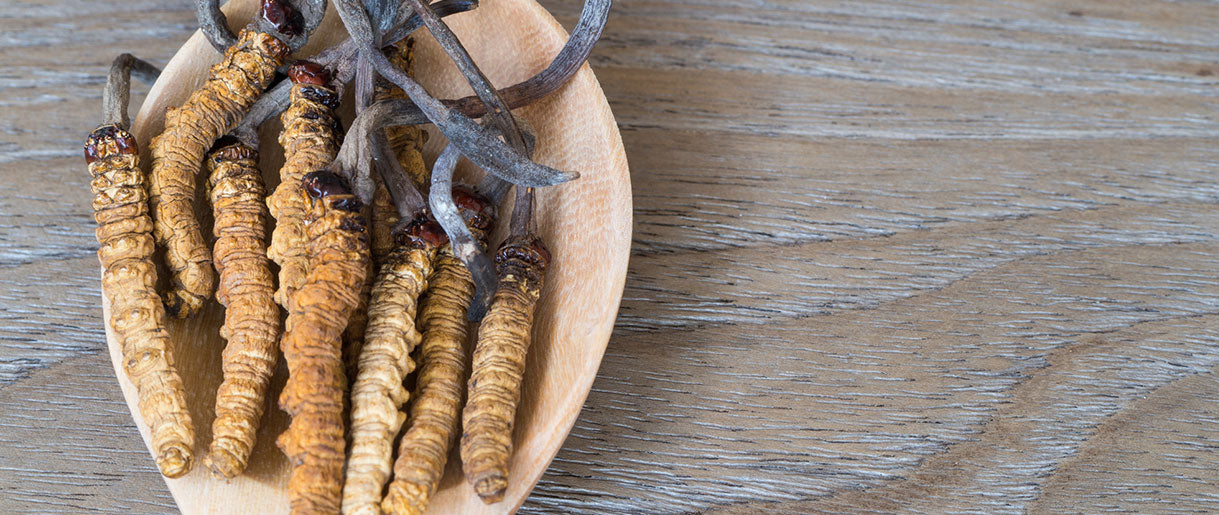Cordyceps, a type of fungus, is often used in traditional medicine due to its potential health benefits. However, there's limited scientific research on the safety and effects of Cordyceps during pregnancy.
Some potential benefits suggested by anecdotal evidence and traditional uses include enhanced energy and immune system support, which could be helpful for expectant mothers. Yet, without substantial scientific evidence, pregnant women must consult their healthcare provider before starting any new supplement, including Cordyceps. Personal health circumstances, potential drug interactions, and other factors can significantly influence the safety and advisability of supplement use during pregnancy.
This article delves deeper into the world of Cordyceps and its role in pregnancy. We'll examine the existing scientific studies related to Cordyceps, how they might specifically impact pregnant women and the developing fetus, and whether these fungus-derived supplements can be a part of a pregnant mother's regimen.
The Science of Cordyceps: A Look at the Bioactive Compounds

Cordyceps—often hailed as a powerhouse among medicinal mushrooms—has been utilized for centuries in traditional Chinese medicine. The cordyceps mushroom boasts an array of bioactive compounds that can impact human health in myriad ways.
The most common types of this mushroom—Cordyceps militaris and sinensis—contain polysaccharides, cordycepin, and ergosterol, among other compounds. These bioactive substances have been linked to various health benefits, from enhancing energy levels to improving immunity.
Cordyceps and its Impact on the Human Body
The way these cordyceps mushrooms work on the human body is fascinating. The active compounds found in cordyceps fungi are thought to interact with different bodily systems, resulting in various potential therapeutic effects.
For instance, polysaccharides have anti-inflammatory properties, while cordycepin is believed to boost energy and reduce fatigue. Additionally, ergosterol can be converted into vitamin D in mushrooms, providing another potential health advantage.
According to some studies(1), consuming cordyceps may also help regulate blood sugar levels, making cordyceps for diabetes an exciting area of research.
The Case for Cordyceps: Insights from Scientific Research
Numerous studies on the general effects of taking cordyceps have pointed toward its potential benefits. However, like any other herbal remedy, it's crucial to approach these findings with a balanced perspective.
Research on(2) cordyceps sinensis and cordyceps militaris, in particular, has revealed potential benefits for kidney and liver function. The traditional Chinese medicine view of these medicinal mushrooms as a support for organ health seems to have some backing from contemporary science. There's even talk about cordyceps for kidney health becoming a more commonly researched topic.
Moreover, findings also indicate that cordyceps mushrooms may have anti-aging properties. Even better, cordyceps could enhance libido and has been used to boost sexual desire. These are just a few examples of these medicinal mushrooms' potential health benefits.
The caterpillar fungus, another name for cordyceps due to its unique growth pattern, has also been researched for its potential to boost athletic performance. It's not uncommon for athletes to explore taking cordyceps for energy, hoping to gain an edge in their performance.
The enhanced athletic performance has been linked to increased oxygen utilization, which could also aid in maintaining energy levels. The benefits of cordyceps seem to extend far and wide, offering many potential health benefits.
Cordyceps and Women's Health: An In-depth Look

In the world of medicinal mushrooms, Cordyceps has generated much interest for its potential health benefits. These parasitic fungi, specifically the Cordyceps mushroom, are known to have various active compounds that may positively affect women's health.
Cordyceps and Women's Health: What Do Studies Say?
Research on the potential benefits of cordyceps for women is still in its early stages, but some human studies and animal studies have hinted at intriguing possibilities. For instance, a study(3) on breast cancer cell growth suggested that certain compounds in cordyceps might have anti-cancer properties. This led to further investigations into cordyceps for cancer treatment, which show promising yet early results.
Another study(4) also pointed toward the potential beneficial effects of cordyceps in clinical nutrition, especially in boosting immunity. The research indicated that cordyceps might increase the activity of immune cells, which could contribute to improved immunity and overall good health in women.
However, it's essential to remember that while these studies are promising, more research is needed to fully understand the potential benefits of cordyceps, especially in the context of women's health.
Cordyceps During Pregnancy: A Close Examination

As part of the ever-growing world of medicinal mushrooms, Cordyceps has been recognized for its potential health benefits. However, many expectant mothers' questions revolve around: "Is cordyceps safe during pregnancy?" As with any supplement or food, it's essential to consider the potential risks and benefits to both the mother and the developing fetus.
Scientific Studies on Cordyceps During Pregnancy
To date, there is a shortage of scientific studies or clinical trials that specifically study the effects of cordyceps during pregnancy.While some studies outside of pregnancy suggest that cordyceps may have many benefits, including immune system support and potential anti-cancer properties, how these findings translate to pregnant women remains unclear.
Therefore, it's difficult to answer definitively, "Is cordyceps safe during pregnancy?" without more targeted research. Expectant mothers should, therefore, always consult their healthcare provider before taking cordyceps during pregnancy.
Potential Risks and Benefits to the Mother
Cordyceps has been recognized for its potential to support the immune system, which could potentially be beneficial during pregnancy. The mushroom contains amino acids and vitamin C, beneficial nutrients for a healthy pregnancy.
Cordyceps has also been investigated for its potential effects on blood sugar regulation, which could be relevant to pregnant women with gestational diabetes. While these findings could suggest cordyceps may be safe during pregnancy, they should be cautiously approached until more research is available.
Potential risks need to be considered too. Some research has indicated that cordyceps may increase the risk of bleeding, potentially posing a potential concern to women with a bleeding disorder or those nearing delivery.
The Potential Impact on the Developing Fetus
Currently, there's a significant knowledge gap when it comes to understanding the potential impact of cordyceps on a developing fetus. Most supplement manufacturers, therefore, recommend that pregnant women avoid consuming cordyceps until more is known about its safety profile.
While cordyceps contains nutrients like amino acids, essential for fetal development, its active compounds and their effect on the fetus are not well-understood. The question of cordyceps' safety during pregnancy thus remains open.
To Consume or Not to Consume: The Final Verdict
In the absence of solid scientific evidence and given the potential risks, the consensus among health professionals is to err on the side of caution. Pregnant women should discuss with their healthcare provider before taking cordyceps, or any other medicinal mushrooms, to ensure they can be safely consumed during pregnancy.
While cordyceps may offer several potential health benefits, the mother's and developing fetus's safety should always be the paramount concern. As research evolves, we hope to understand the role of cordyceps during pregnancy better.
The Medical Community's Viewpoint: Cordyceps and Pregnancy

Views within the medical community can vary regarding using medicinal mushrooms like Cordyceps during pregnancy. From obstetricians and gynecologists to herbalists, the consensus isn't always unanimous.
Obstetricians and Gynecologists Weigh In
Most obstetricians and gynecologists, the primary healthcare providers for pregnant women, tend to err on the side of caution regarding supplements and herbs, including Cordyceps. Due to the lack of robust scientific evidence demonstrating that Cordyceps is safe during pregnancy, many advise their patients to avoid cordyceps until more data is available.
Given that the active compounds in Cordyceps can potentially interact with other medications and influence bodily processes in ways we may not fully understand, this cautious approach seems reasonable.
Herbalists' Perspective
Herbalists, who often work with various medicinal mushrooms, may have a different viewpoint. While they would likely also recommend pregnant women avoid cordyceps due to the same reasons cited by obstetricians and gynecologists, they might suggest alternatives traditionally used for more extended periods and are generally considered safer during pregnancy.
For instance, Reishi mushrooms and Lion's mane are two examples of medicinal mushrooms that herbalists may feel more comfortable recommending to pregnant women. Reishi mushroom, known for its immune-modulating effects, and Lion's mane, reputed for its potential brain health benefits, have a long history of use among pregnant women.
A Spectrum of Opinions
The varying opinions within the medical community reflect the complexity of the topic. While everyone agrees on the importance of safety during pregnancy, the lack of extensive research on medicinal mushrooms like Cordyceps, Reishi mushrooms, and Lion's mane during pregnancy necessitates a balanced, individualized approach.
While some healthcare providers might prefer to avoid cordyceps and similar substances altogether during pregnancy, others might discuss potential risks and benefits with their patients, helping them to make an informed choice. It reminds us of the importance of open, transparent communication between pregnant women and their healthcare providers regarding supplement use.
Precautions and Considerations when Using Cordyceps During Pregnancy

Even though the potential health benefits of Cordyceps might make it appealing, there are essential precautions and dangers of cordyceps to consider, especially during pregnancy. From understanding the potential side effects to talking to your healthcare provider, these considerations can help you navigate the complex landscape of supplement use during pregnancy.
Tips and Warnings for Consuming Cordyceps
Regarding cordyceps supplements, quality can vary widely. Ensure you choose supplements from reputable manufacturers who adhere to rigorous testing standards.
Also, while cordyceps is often available as a powder or capsule, raw mushrooms should be avoided, especially during pregnancy, due to the potential for harmful bacteria.
Several side effects have been associated with cordyceps use, including upset stomach and dry mouth. An upset stomach could exacerbate morning sickness during pregnancy, making cordyceps a less-than-ideal choice for some women.
Furthermore, research suggests that cordyceps may increase blood flow and even become a blood thinner. If you're already taking blood thinners or are nearing delivery, this could increase the risk of bleeding complications.
There have been reports of liver damage associated with the long-term use of cordyceps. While these cases are rare, monitoring liver health is essential if considering cordyceps supplements during pregnancy.
FAQs About Cordyceps Pregnancy
Can Cordyceps Help With Pregnancy-Related Fatigue?
There's insufficient scientific evidence to state that Cordyceps can help with pregnancy-related fatigue definitively. Some studies have shown that Cordyceps may improve exercise performance and reduce fatigue in non-pregnant individuals, potentially due to its effects on the body's production of ATP, which delivers energy to our muscles.
However, it's important to note that these studies were not conducted on pregnant women, and the safety and effectiveness of Cordyceps for pregnancy-related fatigue remains uncertain. The hormonal, physical, and emotional changes during pregnancy can contribute to fatigue, and Cordyceps might not influence these factors.
Can Cordyceps Help Boost Immunity During Pregnancy?
Research suggests that Cordyceps may have potential immune-boosting properties. Some studies have indicated that it can stimulate the production of immune cells and has anti-inflammatory effects. These studies, however, were not conducted on pregnant women, and how these benefits translate to pregnancy remains largely unexplored.
Furthermore, the immune system undergoes unique changes during pregnancy to allow the body to carry a semi-foreign entity (the fetus), so the influence of substances like Cordyceps could potentially impact this delicate balance in ways that aren't fully understood.
How Does Cordyceps Consumption Affect Breastfeeding?
The impact of Cordyceps consumption on breastfeeding has not been well-studied. While some substances can pass into breast milk and affect a nursing baby, it's unclear whether the active compounds in Cordyceps can do so or the potential effects.
Given the lack of information and potential risks, exercising caution about using Cordyceps or other supplements while breastfeeding is generally recommended. Before starting any new supplement regimen while breastfeeding, discussing it with your healthcare provider is crucial. They can provide guidance based on your health history.
Can Cordyceps Be Used To Manage Postpartum Depression?
There's insufficient scientific evidence to definitively suggest that Cordyceps can be used to manage postpartum depression. While some studies indicate that Cordyceps may have various health benefits, including potential antidepressant effects, these studies have not explicitly focused on postpartum depression.
Moreover, the complex nature of postpartum depression, which involves hormonal, physical, and psychological changes, often requires a multi-faceted treatment approach that can include therapy, support, and in some cases, medication.
Key Takeaways
Understanding the potential impacts of Cordyceps during pregnancy is a complex subject, as we've explored throughout this article. As a renowned medicinal mushroom, Cordyceps has a rich history in traditional Chinese medicine and has potential health benefits. From its bioactive compounds affecting the human body in various ways, including possible improvements to kidney function, blood sugar levels, and energy levels, it indeed sparks curiosity.
Cordyceps has also been studied in relation to women's health, offering potential benefits such as immune system enhancement. Yet, the picture becomes a bit hazier when it comes to pregnancy. Studies specific to Cordyceps during pregnancy are scarce, leaving us with no concrete data on its potential risks or benefits to both the mother and the developing fetus.
The medical community's viewpoint on using Cordyceps during pregnancy varies, with some healthcare professionals advocating for its potential benefits. In contrast, others emphasize the lack of substantial evidence regarding its safety and recommend avoidance.
All these factors lead us to a critical point: the necessity of personal health considerations and consultation with a healthcare provider before initiating any new supplement, including Cordyceps, during pregnancy. Your healthcare provider can provide guidance based on your unique health history.
Please comment below if you found this article helpful or have any more questions or experiences you'd like to share. Let's continue the conversation about Cordyceps and pregnancy, sharing knowledge to help each other make informed decisions.
References
- Studies on the Antidiabetic Activities ofCordyceps militaris Extract in Diet-Streptozotocin-Induced Diabetic Sprague-Dawley Rats, (1)https://www.ncbi.nlm.nih.gov/pmc/articles/PMC3967809/
- Cordyceps sinensis (a traditional Chinese medicine) for treating chronic kidney disease, (2)https://pubmed.ncbi.nlm.nih.gov/25519252/
- Extracts of Cordyceps sinensis inhibit breast cancer cell metastasis via down-regulation of metastasis-related cytokines expression, (3)https://pubmed.ncbi.nlm.nih.gov/29253616/
- Trends in the Immunomodulatory Effects of Cordyceps militaris: Total Extracts, Polysaccharides and Cordycepin, (4)https://www.ncbi.nlm.nih.gov/pmc/articles/PMC7735063/










Let Us Know Your Comments